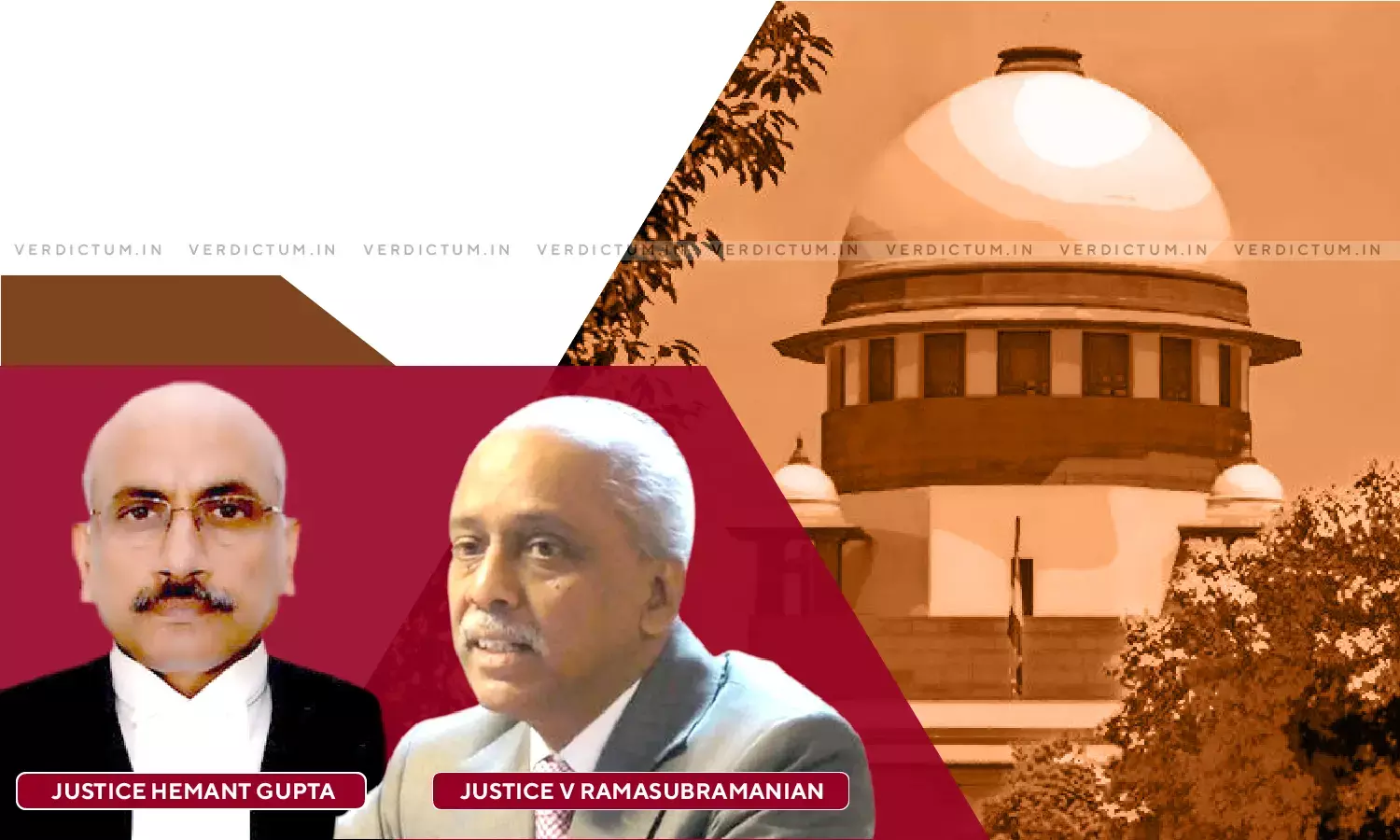NDMC To Administer Markets Transferred To It In 2006 By Union Government As Delegate Of The Union & Not As Owner: Supreme Court
A two-judge Bench of Justice Hemant Gupta and Justice V. Ramasubramanian had held in the context of the rights of a Licensees of a stall in the Baba Kharag Singh Marg Market of New Delhi that, "The rights of the Council are to administer the properties as a delegate of the Government of India and not as an owner as there were no transfer of rights in the markets in favour of the Council."
In the case at hand, the allottee of a stall located at the Baba Kharag Singh Marg had sublet it to the Respondent (the occupant). Later, this stall was transferred by the allottee in favour of the Respondent. Following this, a show-cause notice was issued to the Respondent alleging sub-letting and unauthorized construction. The Respondent claimed ownership of the property by relying on a Circular issued by the Government of India as well as a Cabinet decision, whereby occupants of the shops in the 14 specified markets were resolved to be granted ownership rights. The Respondent had contended that she should be considered to be in the same category as the occupants of those 14 markets and should not be discriminated against.
Subsequently, an order of eviction was passed, which ordered the eviction of the allottee from whom the Respondent had purchased the stall. An appeal was filed against this order, which was dismissed by the Additional District Judge. Following this, the Respondent filed a Writ Petition in the Delhi High Court, which was allowed. The High Court directed the New Delhi Municipal Council (NDMC) to transfer the allotment in favor of the Respondent. The Division Bench dismissed the appeal of the NDMC against the said judgment.
Aggrieved, the NDMC filed an appeal before the Supreme Court.
The Court analyzed the contentions put forth by the Respondent and observed that as per the Circular, the cut-off date for the regularization of the shops, stalls, and flats was on or before 1989. The Respondent had become the owner of the stall in the year 2000. Furthermore, the Court clarified that the Cabinet decision in question had ceased to operate and the public notice would not be applicable to the stalls located at the Baba Kharag Singh Marg.
The Court further noted that the Ministry of Urban Development of the Government of India had passed an order which transferred certain markets to the Council and the Municipal Corporation of Delhi. After examining this order, the Court observed, "Thus, the rights of Government of India in administering the markets as a lessor or licensee alone was transferred and not the land or the building thereon. The Council was to administer the properties as a delegate of the Union. The regularization/restoration of allotment of shops in para 3 was in terms of the policy of the Union and not that of Council."
Thus, the Court asserted, "if there existed a policy of regularization or restoration of the Union, the same may be followed by the Council. However, the policy of the Council, if any, in respect of regularization/restoration of allotment would not be applicable."
"Therefore, even if the Council has not produced policy of regularization, it is not material to the questions raised in the present appeal. The rights of the Council are to administer the properties as a delegate of the Government of India and not as an owner as there were no transfer of rights in the markets in favour of the Council. This is evident from the fact that the revenue generated from the transfer of markets has to be deposited in a separate corpus of funds to be utilized only for the purpose of development of markets and for no other purpose. Such income would not accrue to the Council as a part of their budget." opined the Court.
In conclusion, the Court held, "Therefore, the markets transferred by the Government of India to the Council have to be dealt independently and separately than the properties owned by the Council as the Council has no title over such markets as it has been asked only to manage them on behalf of the Government of India."
Hence, the Court found the Judgments of the Division Bench of the High Court as well as the Single Bench of the High Court to be erroneous in law. In addition to this, the eviction order passed by the Additional District Judge was restored. With the aforesaid findings, the Court allowed the Appeal.




